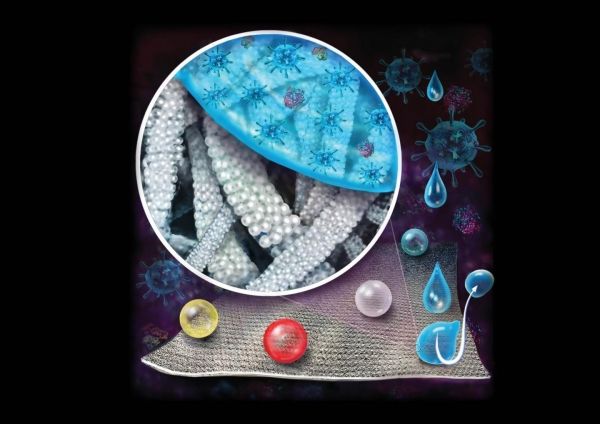Masks, gowns, and other personal protective equipment (PPE) are essential for protecting healthcare workers. However, the textiles and materials used in such items can absorb and carry viruses and bacteria, inadvertently spreading the disease the wearer sought to contain.
When the coronavirus spread amongst healthcare professionals and left PPE in short supply, finding a way to provide better protection while allowing for the safe reuse of these items became paramount.
Research from the LAMP Lab at the University of Pittsburgh Swanson School of Engineering may have a solution. The lab has created a textile coating that can not only repel liquids like blood and saliva but can also prevent viruses from adhering to the surface. The work was recently published in the journal ACS Applied Materials and Interfaces.
“Recently there’s been focus on blood-repellent surfaces, and we were interested in achieving this with mechanical durability,” said Anthony Galante, PhD student in industrial engineering at Pitt and lead author of the paper. “We want to push the boundary on what is possible with these types of surfaces, and especially given the current pandemic, we knew it’d be important to test against viruses.”
Read more at University of Pittsburgh
Image: An illustration shows the treated textile's ability to repel fluids. (Credit: University of Pittsburgh)


